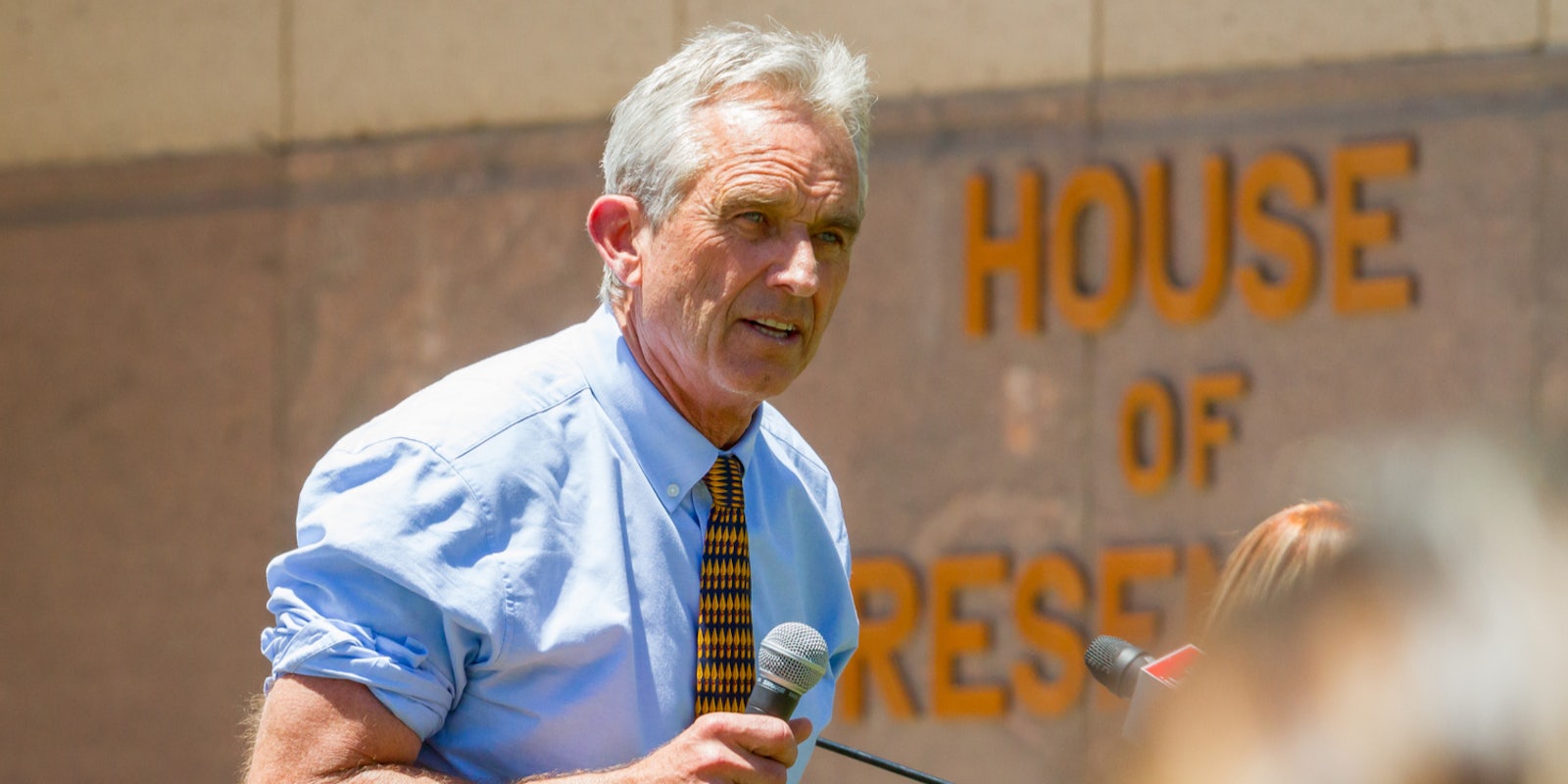Robert Kennedy Jr., former President John F. Kennedy’s nephew, is one of the most “successful” influencers in spreading health misinformation, according to an investigation published this week.
The posts on Kennedy Jr.’s Instagram have the highest number of mentions of any posts with medical misinformation—more so than President Donald Trump, the Tortoise Media investigation revealed.
The report’s authors discovered other 145,000 posts across Facebook and Instagram since January that perpetuated misinformation related to health, which is especially of concern at a time when world leaders continue struggling to battle the coronavirus pandemic.
These posts pertained to already existing conspiracy theories such as 5G exposure risks, vaccine ingredients claimed to be harmful, and blaming Bill Gates for starting the coronavirus pandemic.
The report found that Kennedy’s posts with messages on vaccines, Bill Gates, and 5G radiation garnered 486,000 interactions, which include likes, comments, shares, and other reactions.
Second to Kennedy in spreading misinformation is Rizza Islam, a YouTuber and Scientologist who boasts almost 500,000 followers on Instagram and about 120,000 interactions on his posts. He has spread misinformation about 5G radiation, Gates, and the origins of the coronavirus.
Each of the top 10 “influencers” identified by Tortoise Media has between 47,000 to 665,000 followers or page likes, with Kennedy having the largest number. Misinformation about Gates is one of the primary focus for all but two of these top 10 members; misinformation about 5G radiation appears to be the second most common primary focus for them. Others include conspiracies about face masks, vaccines, and the origins of COVID-19.
The conspiracy theorists also include people outside of the U.S. Nigerian politician Femi Fani-Kayode, who has almost 700,000 combined followers, and Samoan-Australian “health influencer” Taylor Winterstein, who has 76,000 combined followers, were named as top influencers in the report.
Tortoise Media’s analysis says that the “influencers” are banded together by the common fear of “censorship”—a scapegoat for most of these conspiracy theorists—that appeared in a sample of 900 posts. Notably, the influencers made up 7% of accounts in the sample but carried 80% of all the social interactions, according to the research.
The analysis also says while there is no clear or consistent intention behind why these influencers would want to spread conspiracies during a global pandemic, financial gain and attention seem to be at the core. The top 10 influencers in the sample were politicians, self-proclaimed activists, or married to a celebrity if not one themselves.
H/T Tortoise Media


